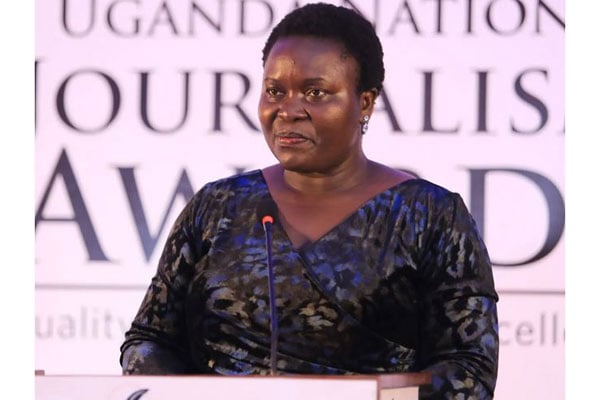WFP nobel peace prize deserving

Emilly Comfort Maractho
What you need to know:
- Although World Food Day is celebrated in honour of the founding date of the Food and Agricultural Organisation (FAO) in 1945, FAO’s work complements that of the WFP as well as the International Fund for Agricultural Development, among others.
The Norwegian Nobel Committee this year awarded the World Food Programme (WFP) the Nobel Peace Prize, commending their efforts to combat hunger and contribution to peace in conflict affected areas.
They were also commended for acting as a driving force in efforts to prevent the use of hunger as a weapon of war.
The prize came a week to the World Food Day, celebrated on October 15 of every year.
This year, the theme is ‘grow, nourish, sustain. Together’ and like most international events, the World Food Day will not be celebrated in the fashion it has always been due to the Covid-19 pandemic.
Although World Food Day is celebrated in honour of the founding date of the Food and Agricultural Organisation (FAO) in 1945, FAO’s work complements that of the WFP as well as the International Fund for Agricultural Development, among others.
This year also marks the 75th anniversary of FAO.
Most people take food for granted but in many countries, especially those in conflict situations, lack of food could end lives of millions or escalate conflict.
Some countries are more blessed than others. In Uganda, we should be winning on the Sustainable Development Goal targeting eradicating hunger because it is an area we have been blessed.
During Covid-19 induced lockdown, one of the most amazing things to watch was the abundance of fresh food on the market, cheaply available.
On the one hand, it seemed as if there was so much food for anyone to sleep hungry. Yet, this was one of the big issues in urban centres, forcing government to buy and distribute food to the vulnerable.
The abundant cheap food signalled a larger problem of distribution. The closure of hotels, and borders around us meant that farmers had nowhere to take their otherwise great harvest.
There were stories of a tray of eggs costing Shs5,000 yet ordinarily it costs about twice that amount. Trucks were selling fruits of all kinds at affordable prices by the road. One could buy three large pineapples at Shs5,000. It was simply amazing.
The truth is, if we were to beg anything, it would not be food. While I may not qualify to be called a farmer, I have occasionally planted jokingly and eaten from my garden, joyfully.
But for various reasons such as floods, pests and diseases, delayed seasons for planting or just bad seeds given to farmers, it is not uncommon to hear stories of Ugandans starving, even though World Food Programme should be setting its regional headquarters here.
Countries with much less fortune appear to grow and sell more food to the international market than we do. We are more likely to grow the best organic healthy rice and still have our market filled with rice imported from far and wide, probably less healthy.
But I know too well, the headaches of the Ugandan farmers. While many of us enjoyed abundant cheap fresh food during lockdown, farmers are crying because they did not get good returns on their investment.
Much of that investment is not just money, but hours in the sun and gallons of sweat. Save for those who do large scale farming, it is difficult to get good returns on agricultural investment. And, it is harder for farmers to access affordable loans despite efforts to make these financial products available and affordable for them.
How then can large agricultural organisations like the WFP, FAO and International Fund for Agricultural Development use their knowledge and experience to benefit farmers who are largely small holder farmers? How can information technology support them to benefit from their hard work?
One of the ways is to collaborate with development focused non-governmental organisations who reach the farmers and work with them directly, educating them on best farming options or markets, choices they need to make, and other forms of support.
For instance, many farmers listen to the radio, which could serve as vehicles for agricultural information.
Farming and its risks remind me of the Brazilian writer, Paolo Coelho who appropriately describes the farming attitude.
He says that in life, we all take one of two attitudes: to build or to plant.
‘There are those who plant. They endure storms and all the many vicissitudes of the seasons. But unlike a building, a garden never stops growing. And while it requires the gardener’s constant attention, it also allows life for the gardener to be a great adventure’. He crowns the observation, that ‘in the history of each plant lies the growth of the whole world’.
Farming is a risk we have to be prepared to take, despite the many challenges. We are perhaps more connected to our farmers than we realise. We should reciprocate by supporting organisations that contribute to food security where it is most needed. I find this year’s Nobel Peace Prize pleasing and deserving.
Ms Maractho is the head and senior lecturer, Department of Journalism and Media studies at UCU.
[email protected]




